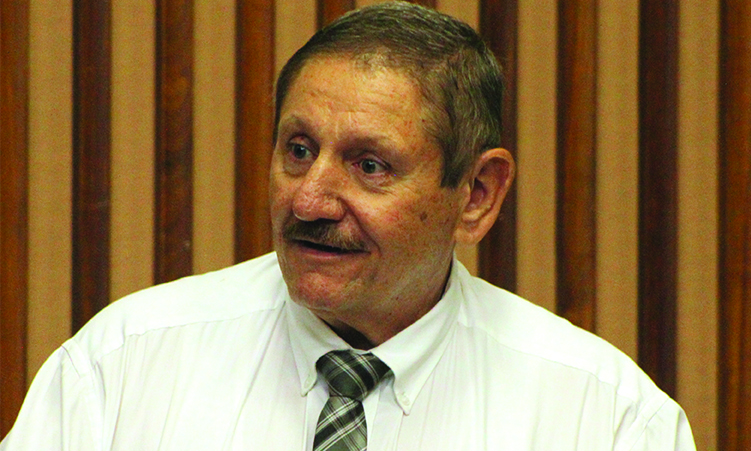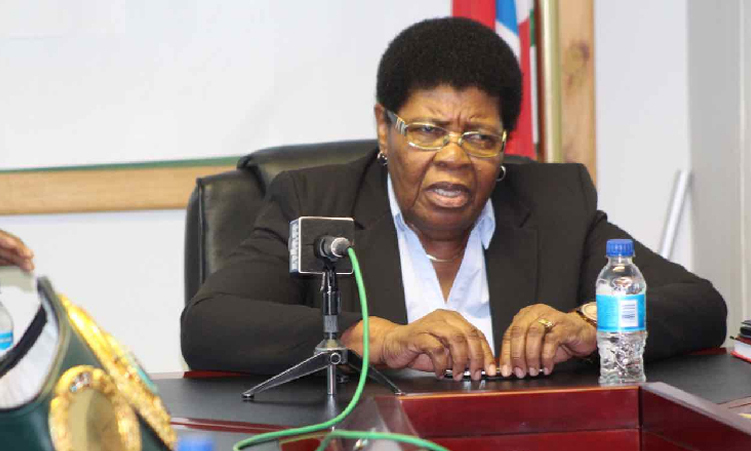Former Namibian Institute of Mining and Technology (Nimt) employee Ernst Lichtenstrasser has asked a South African ballistics expert to examine evidence alleged to link him to the murder of the institute’s two top executives four years ago.
Lichtenstrasser planned to have a ballistics expert in the United States examine a firearm and spent cartridges allegedly linked to the murder of Nimt executive director Eckhart Mueller and his deputy, Heimo Hellwig, but the American expert would not be able to travel to Namibia to testify in Lichtenstrasser’s trial, defence lawyer Albert Titus informed judge Christie Liebenberg in the Windhoek High Court yesterday.
A South African expert has now been engaged to carry out the requested examination and produce a report on his findings, Titus said.
As the South African expert would have to travel to Namibia to examine the evidence, Lichtenstrasser’s trial has been adjourned until 11 July, when a hearing on the status of the matter is due to take place.
The state is alleging that Lichtenstrasser had been involved in a dispute with the Nimt management after a decision to transfer him from the institute’s campus at Tsumeb, where he was based, to Keetmanshoop.It is also alleged that Lichtenstrasser murdered Mueller (72) and Hellwig (60) by gunning them down at the entrance of the Nimt head office at Arandis on the morning of 15 April 2019.
Lichtenstrasser (61), who is being prosecuted on eight criminal charges, is denying that he murdered the two men or committed the other crimes of which he is accused. A Namibian Police Forensic Science Institute ballistics expert, Kalipus Sem, testified in March last year that eight spent cartridge casings and a bullet point found at the scene where Mueller and Hellwig had been shot were linked to a 9mm Beretta pistol, which police officers discovered buried in the desert about 15 kilometres from Arandis a month after the murders. Sem also testified that the pistol could be linked to other spent cartridge casings, which, according to previous witnesses in the trial, had been found at Lichtenstrasser’s house at Otavi and at a shooting range on a farm near Tsumeb that had been used by Lichtenstrasser.
According to other evidence before the court, DNA test results connected Lichtenstrasser to a gun holster and the firearm parts found near Arandis on 17 May 2019.
Lichtenstrasser’s testimony in his own defence was concluded on Monday. A clinical psychologist who told the court she conducted about 12 hours of interviews with Lichtenstrasser in September and October last year, Ute Sinkala, testified as a defence witness after the end of his testimony. Sinkala told the judge that in her opinion, the circumstances in which Lichtenstrasser was detained and interrogated by police officers after his arrest had the effect that he was under extreme stress, his mental state was compromised, and he was “completely impressionable” when he made a confession to police officers at Walvis Bay on 15 May 2019.
His confession was not credible and should not be deemed admissible as evidence in his trial, Sinkala stated in a report given to the court.
Lichtenstrasser, who was arrested at Karibib during the evening of 16 April 2019, has been held in custody since his arrest.
Stay informed with The Namibian – your source for credible journalism. Get in-depth reporting and opinions for
only N$85 a month. Invest in journalism, invest in democracy –
Subscribe Now!






